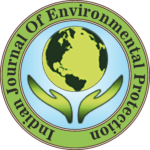IJEP 41(4): 445-450 : Vol. 41 Issue. 4 (April 2021)
S. Gopala Krishnan1* and A. Ameer Hussain2
1. Acharya Institute of Graduate Studies, Department of Comerce and Management, Bangalore – 560 017, India
2. Presidency University, School of Commerce, Bengaluru – 560 064, India
Abstract
The research is aimed at finding out the various factors that are responsible with the intention to segregate solid waste in the household before disposal and the influence of the same to actually segregate solid waste. Theory of planned behaviour (TPB) was used as the base model to study the relationship between different variables of interest. Environmental consciousness and awareness were introduced in the TPB model as the independent variable affecting segregation intention and extended theory of planned behaviour was developed. As a part of the study, a sample of 140 respondents were chosen from the household of Bangalore and questions were asked related to the study. The data collected by field visit was analysed using SPSS and AMOS. The extended theory of TPB was tested by structured equation modelling using AMOS. It was observed that the variance in segregation intention is better explained by introducing environmental consciousness and awareness in TPB model, proving the model fit of the extended theory TPB.
Keywords
Solid waste, Segregation, Environmental consciousness, Awareness, Theory of planned behaviour
References
- Mani, S. and S. Singh. 2016. Sustainable municipal solid waste management in India : A policy agenda. Procedia Env. Sci., 35:150-157.
- Rawat, J., et al. 2016. Environmental friendly ways to generate renewable energy from municipal soild waste. Procedia Env. Sci., 35:483-490.
- Sujauddin, M., S.M.S. Huda and A.T.M.R. Hoque. 2008. Household solid waste characteristics and management in Chittagong, Bangladesh. Waste Manage., 28(9):1688-1695.
- Soni, A. k., D. Patil and K. Argade. 2016. Municipal solid waste management. Procedia Env. Sci., 35:119-126.
- Bovea, M.D., et al. 2010. Environmental assessment of alternative municipal solid waste management strategies. A spanish case study. Waste manage., 30(11) : 2383-2395.
- Baud, I.S.A., et al. 2001. Quality of life and alliances in solid waste management : Contributions to urban sustainable development. Cities. 18(1):3-12.
- Wang, F., et al. 2018. Compliance with household solid waste management in rural villages in developing countries. J. Cleaner Production. 202:293-298.
- Ghosh, S. K. 2016. Swachha Bharat Mission (SBM)- A paradigm shift in waste management and cleanliness in India. Procedia Env. Sci., 35:15-27.
- Sharholy, M., et al. 2007. Municipal solid waste characteristics and management in Allahabad, India. Int. J. Waste Manage., 27(4):490-496.
- Hazra, T. and S. Goel. 2009. Solid waste man-agement in Kolkata, India : Practices and challenges. Integrated Waste Manage., 29(1):470-478.
